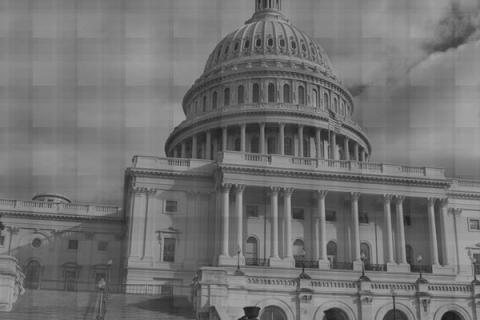Amid the heated rhetoric of a presidential election year, President Barack Obama's latest federal budget proposal for Fiscal Year 2013 (which starts on October 1, 2012) is already eliciting strong reactions from both sides of the partisan divide and foreshadowing a big, politically-charged fight over taxes and spending.
Clocking in at $3.8 trillion, here's what The Politico had to say about Obama's budget proposal:
"Putting his chips on manufacturing and new energy sources, President Barack Obama rolled out his new $3.8 trillion budget Monday, trying to balance the August debt accords against his own judgment that too much austerity, too fast will spell trouble for the economy — and his own reelection chances in November.From Justice to Defense and Homeland Security, as many as six Cabinet-level departments or agencies will see their budgets shrink in compliance with the new appropriations caps. But Obama would also go outside the box, committing tens of billions of dollars to new mandatory spending initiatives and for the first time, tapping war savings to fund his domestic agenda."
The projected federal budget deficit for 2013 under Obama's proposal clocks in at $901 billion, and commentators are already pointing out that the president has fallen short of his 2009 promise to cut the budget deficit inherited from President Bush in half by the end of his first term:
"So if we confront this crisis without also confronting the deficits that helped cause it, we risk sinking into another crisis down the road as our interest payments rise, our obligations come due, confidence in our economy erodes, and our children and our grandchildren are unable to pursue their dreams because they're saddled with our debts.And that's why today I'm pledging to cut the deficit we inherited in half by the end of my first term in office. This will not be easy. It will require us to make difficult decisions and face challenges we've long neglected. But I refuse to leave our children with a debt that they cannot repay -- and that means taking responsibility right now, in this administration, for getting our spending under control."
Jake Tapper wrote at ABC News Monday:
"The 2013 budget the president submitted today does not come close to meeting this promise of being reduced to $650 billion for fiscal year 2013.The president noted in that 2009 speech the Obama administration inherited a $1.3 trillion deficit.The deficit was similarly $1.3 trillion in 2011, is projected to be $1.15 trillion in 2012, and the president’s budget claims it will be $901 billion in 2013."
Republicans are hitting Obama hard for the apparent broken promise as well as with the usual (and usually true of either party) accusations of accounting gimmicks and bogus projections. Meanwhile, Ron Paul 2012 campaign blogger Jack Hunter took to the Republican presidential candidate's website to point out that while Obama's budget projects a nearly trillion dollar deficit, Paul's campaign platform includes a detailed plan to eliminate a trillion in federal spending in the first year of his administration.
But Republicans aren't the only ones opposed to Obama's 2013 budget proposal. While they say it is fiscally irresponsible and doesn't cut the budget deficit by nearly enough, some Democrats are opposed to the budget because it cuts too much and threatens economic recovery with austerity measures that are too radical. Congressional Black Caucus Chairman Emanuel Cleaver (D-MO) called the proposal "a nervous breakdown on paper" and expressed concerns that Republicans were pulling Obama too far in their direction:
'"This budget is a nervous breakdown on paper," said Cleaver during an interview on CNN's "Starting Point" Monday morning. "We're still in a recession, we're still struggling. Unemployment is still too high," he said.The Missouri lawmaker said he understood the need for Congress to rein in spending. "We do have a serious ailment as a nation and certainly as Congress," he said. "We suffer from 'spendicitis.' " But Cleaver said the president was not "the one who spread this disease" and had inherited those problems when he came to office.While he praised Obama for attempting to tackle challenging fiscal issues, Cleaver feared GOP pressure "for the federal government to turn the spigot off completely" could push the nation "deeper" into economic turmoil.'
So is Obama's budget proposal too radical in its spending, or too radical in its cutting? The Republican Party's most visible fiscal hawk, Ron Paul, would like to eliminate a trillion in spending from the federal budget. President Obama is about to add a trillion to the national debt. Some Democratic lawmakers like Rep. Cleaver think that isn't nearly enough spending to boost our economy out of recession. We're all so vastly different in our take on fiscal policy that a heated and politically-charged budget battle is sure to follow.
Reuters reports that House Republicans are promising this proposal is dead on arrival:
"Congress is free to ignore the plan and Republicans, who control the U.S. House of Representatives, have made clear that it will be dead on arrival as their party prepares an election battle over taxes, spending and the size of the government.Presidents' budgets are frequently ignored by Congress, which writes the laws that appropriate the funds to keep the government running, and his last budget was also not passed."
My prediction is that unless House Republicans have a really good and compelling alternative, voters will call their opposition to Obama's plan cynical, partisan, and obstructionist-- and they will be right.

